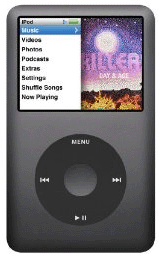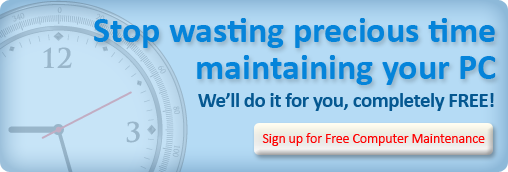
In today’s digital age, no matter who you are, you most likely have a music collection (or music library). Whether your music library is on a computer or you have some kind of MP3 player, organization can become a problem as you attain more music. This is why ID3 tags have been developed to contain metadata for each music file, such as the artist, song title, and album title.
If you already have a large music collection (or even if you are just starting a music library), here are 5 tips to help you get (and keep) your music library in order.
Try Auto-Tagging
For those like myself who don’t even want to worry about music library organization, there is an automated feature, known as auto-tagging. If you already use software like iTunes you have probably noticed how it sometimes downloads album art or other kind metadata automatically. This is an example of auto-tagging MP3 or music files.
If you do not (or refuse to) use iTunes, there is other software available that can auto-tag your MP3 library for you with ease. One such program is Musicmatch JukeBox for all PC users. Available as a free download, it’s Super Tagging feature will compare all of the music in your library with data from its comprehensive tag database and automatically download the metadata you are missing, to help achieve the task of organizing your playlist.
Perform Manual Tagging
If you are particularly meticulous on how you want everything named because you have an unparalleled naming convention you can always manually tag all of your MP3s or music files. There are several choices available when it comes to media and music software that supports manual tagging of music. This includes Windows Media Player (included with every copy of Windows), and Winamp.
If you want to do some manual MP3 tagging, with extra style and efficiency, there are many other free programs out there, such as MP3tag and TigoTago. This method of manual organization is useful when auto-tagging features are unable to find your artist or album, a problem particularly associated with music from local bands, underground artists or indie groups.
Have a Procedure
Usually, when I download music, I put it in an assigned folder that I sort through every so often… as if it was an airport with airplanes constantly landing on the same runway, only to be split up to different gates.
This method helps you to see if the music file (or airplane, in our metaphor) is even what you want, and to decide if it should be cleared for transport to another folder (or gate) for long-term storage. This way, you can check your latest downloaded files once a day (or week), sort through them, tag them as necessary, and then put them with the rest of your library.
Create a Naming Convention
Naming your files could also depend on where you listen to your music. If you only want to listen to the music on your computer, some people have suggested not having any ID3 tags attached to your music files at all. This bold and counter-cultural idea has been proposed by many because having this additional information may slow down the file load process on your computer. Let’s say you are trying to load a database of 1000 songs. The process will almost undoubtedly take longer because your PC also has to sort through all of the ID3 metadata attached to each music file.
If this sounds like you, you should just develop a strict file-naming convention that every music file follows, such as “Artist-Album-Title.mp3”. This way it will be much easier to organize your large collection without the ID3 tags. Be aware, however, that ID3 tags are more useful (and recommended) if you will be listening to your music on devices such as a smartphone, iPod, or other mp3 player.
Buy Your Music
Most legitimate MP3 music stores, including iTunes and Amazon Music, provide most (or all) of their music already tagged properly with all details.
Purchasing your music from a reputable source prevent you from having to do anything other than saving a file to its proper location. Also, the sound of the music files from these sources tends to be more consistent and of much higher quality. In addition, you are less likely to notice changes in the volume from song to song.
Do you know of some other tips that can help people keep their music organized. If so, feel free to share them in the comments below.
